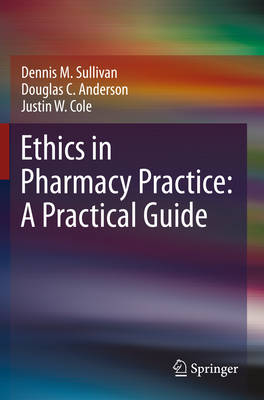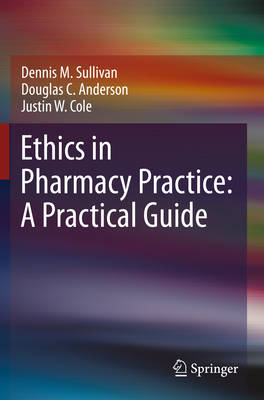
- Afhalen na 1 uur in een winkel met voorraad
- Gratis thuislevering in België vanaf € 30
- Ruim aanbod met 7 miljoen producten
- Afhalen na 1 uur in een winkel met voorraad
- Gratis thuislevering in België vanaf € 30
- Ruim aanbod met 7 miljoen producten
Ethics in Pharmacy Practice: A Practical Guide
Dennis M Sullivan, Douglas C Anderson, Justin W ColeOmschrijving
This textbook offers a unique and accessible approach to ethical decision-making for practicing pharmacists and student pharmacists. Unlike other texts, it gives clear guidance based on the fundamental principles of moral philosophy, explaining them in simple language and illustrating them with abundant clinical examples and case studies. The strength of this text is in its emphasis on normative ethics and critical thinking, and that there is truly a best answer in the vast majority of cases, no matter how complex. The authors place high trust in a pharmacist's moral judgment. This teaches the reader how to think, based on ethical principles, not necessarily what to think. This means navigating between the two extremes of overly theoretical and excessively prescriptive. The cogent framework given in this text uses the language of competing duties, identifying the moral principles at stake that create duties for the pharmacist. This is the balancing act of normative ethics, and of deciding which duties should prevail in a given clinical situation. This work presents a clear-cut pathway for resolving ethical dilemmas encountered by pharmacists, based on foundational principles and critical thinking.
Presents a clear-cut pathway for resolving the ethical dilemmas encountered by pharmacists, based on foundational principles and critical thinking.
Jon E. Sprague, RPh, PhD, Director of Science and Research for the Ohio Attorney General
Specificaties
Betrokkenen
- Auteur(s):
- Uitgeverij:
Inhoud
- Aantal bladzijden:
- 234
- Taal:
- Engels
Eigenschappen
- Productcode (EAN):
- 9783030721718
- Verschijningsdatum:
- 18/06/2022
- Uitvoering:
- Paperback
- Formaat:
- Trade paperback (VS)
- Afmetingen:
- 155 mm x 235 mm
- Gewicht:
- 458 g

Alleen bij Standaard Boekhandel
Beoordelingen
We publiceren alleen reviews die voldoen aan de voorwaarden voor reviews. Bekijk onze voorwaarden voor reviews.











